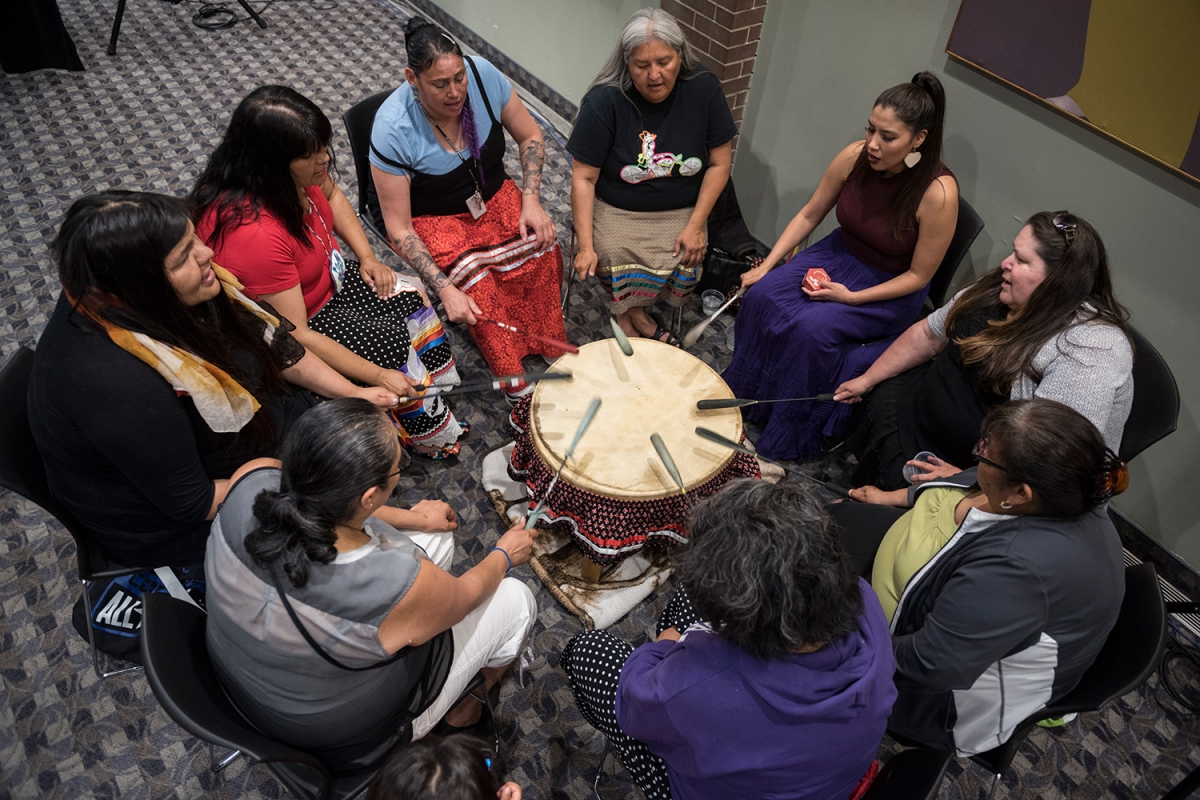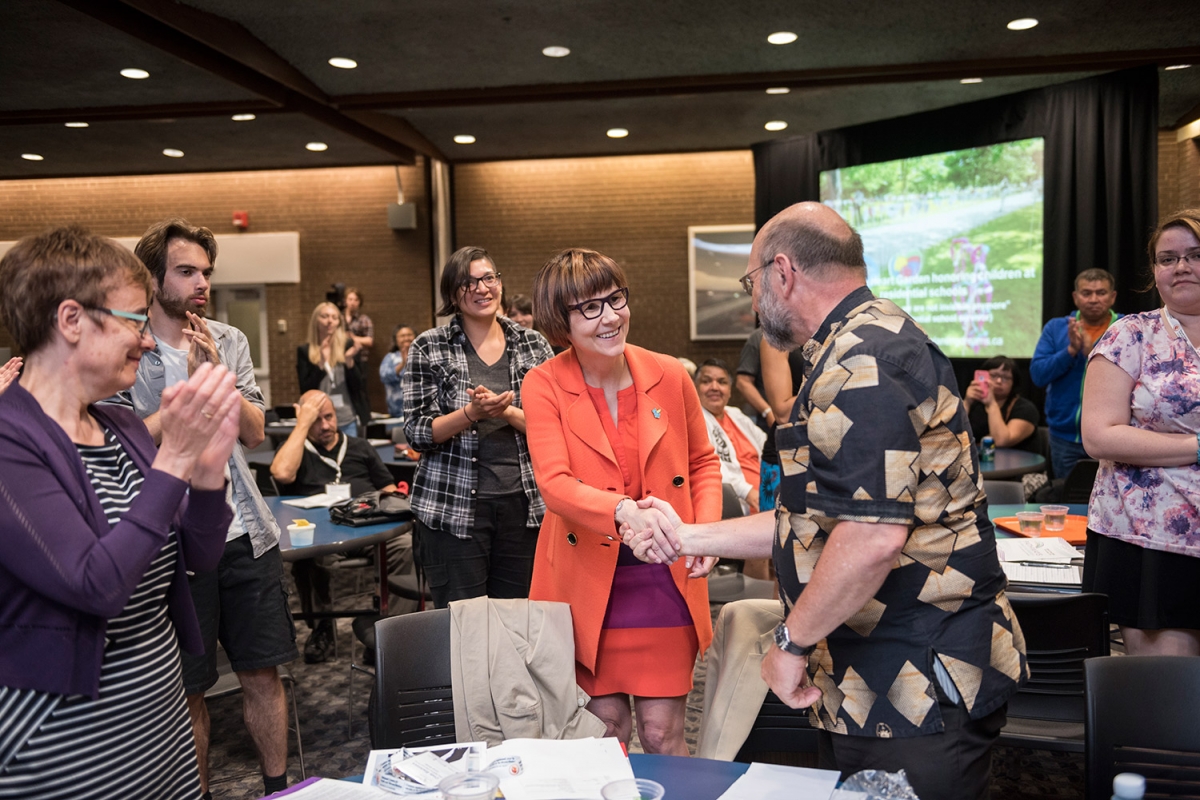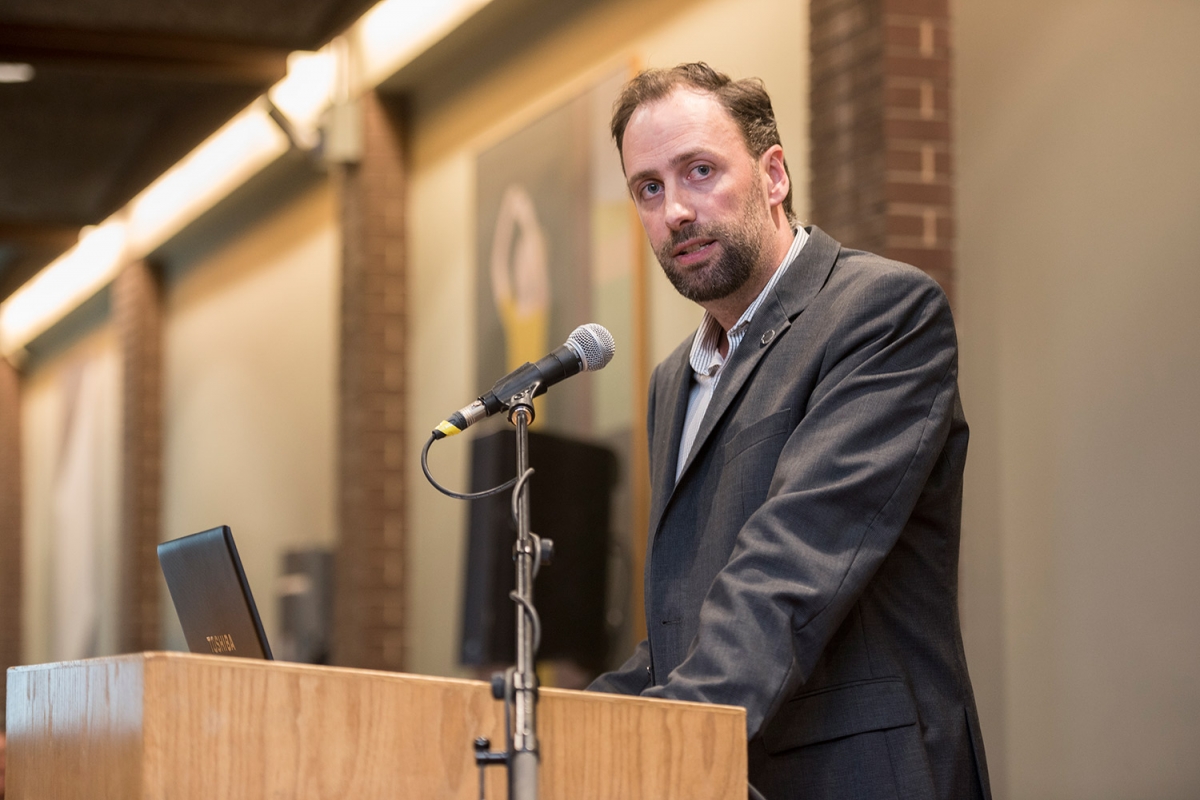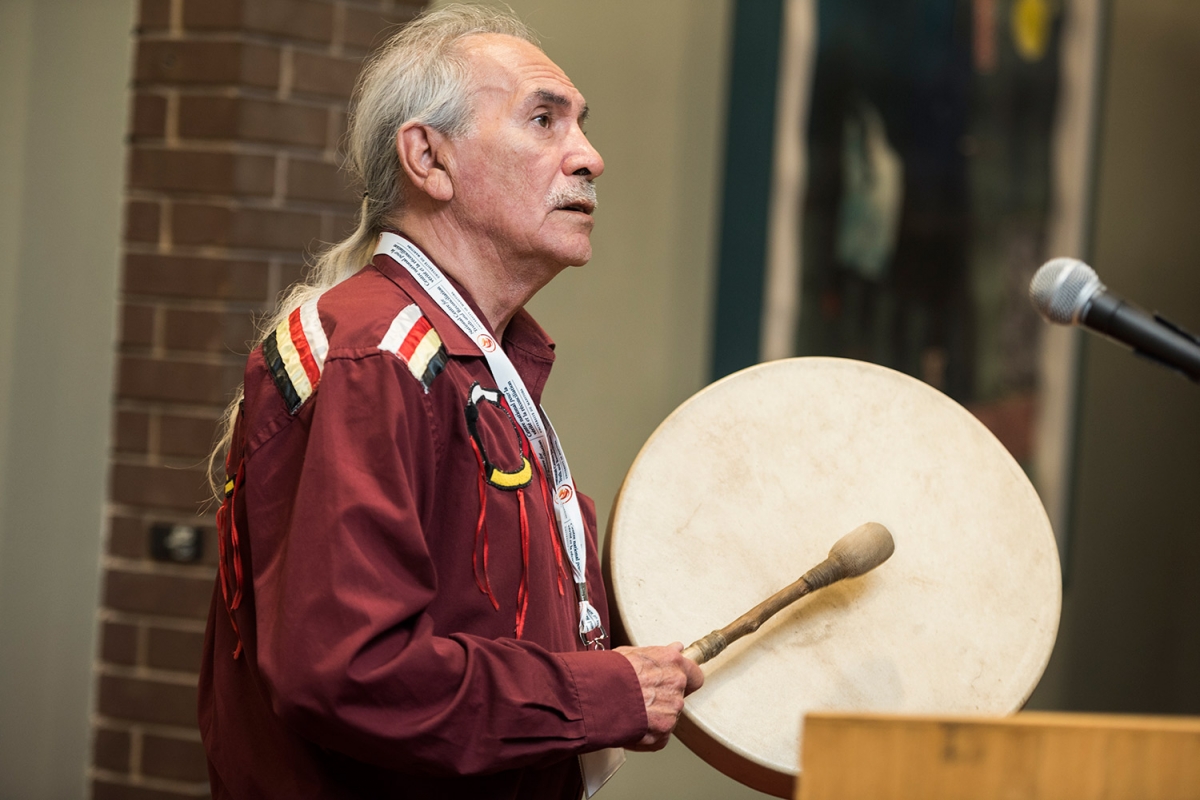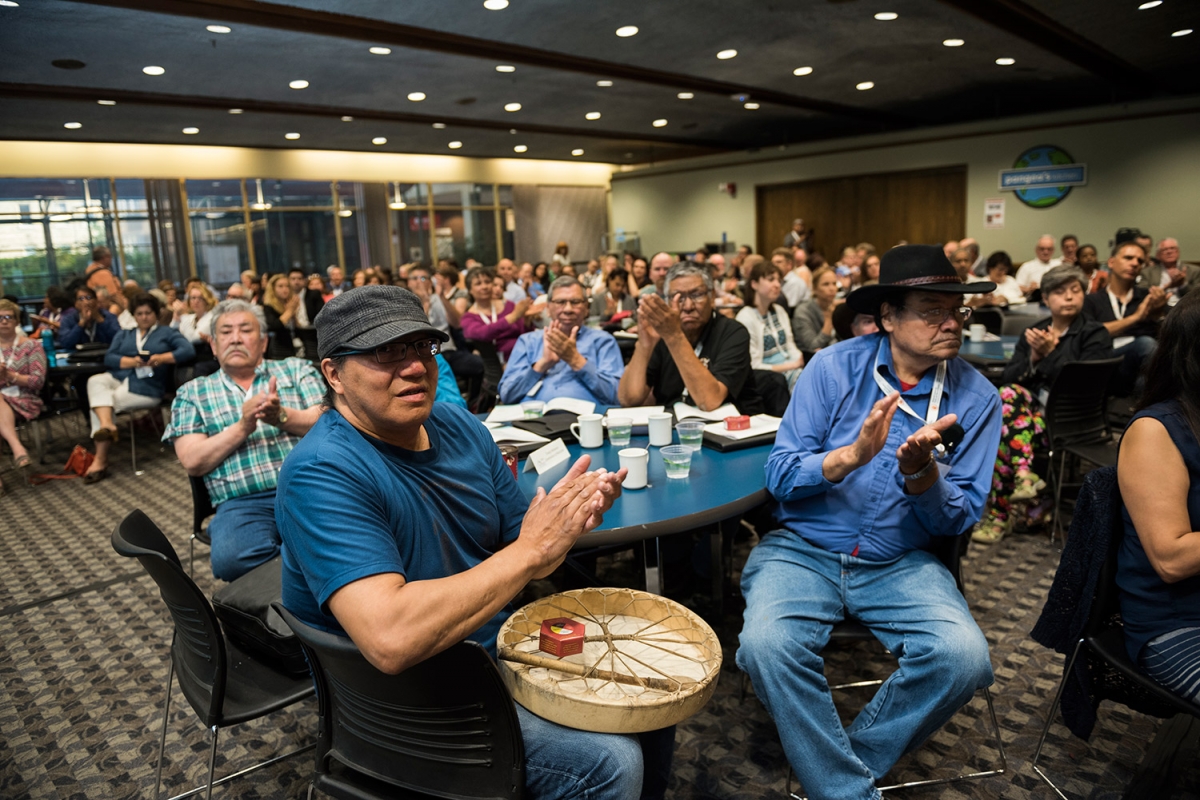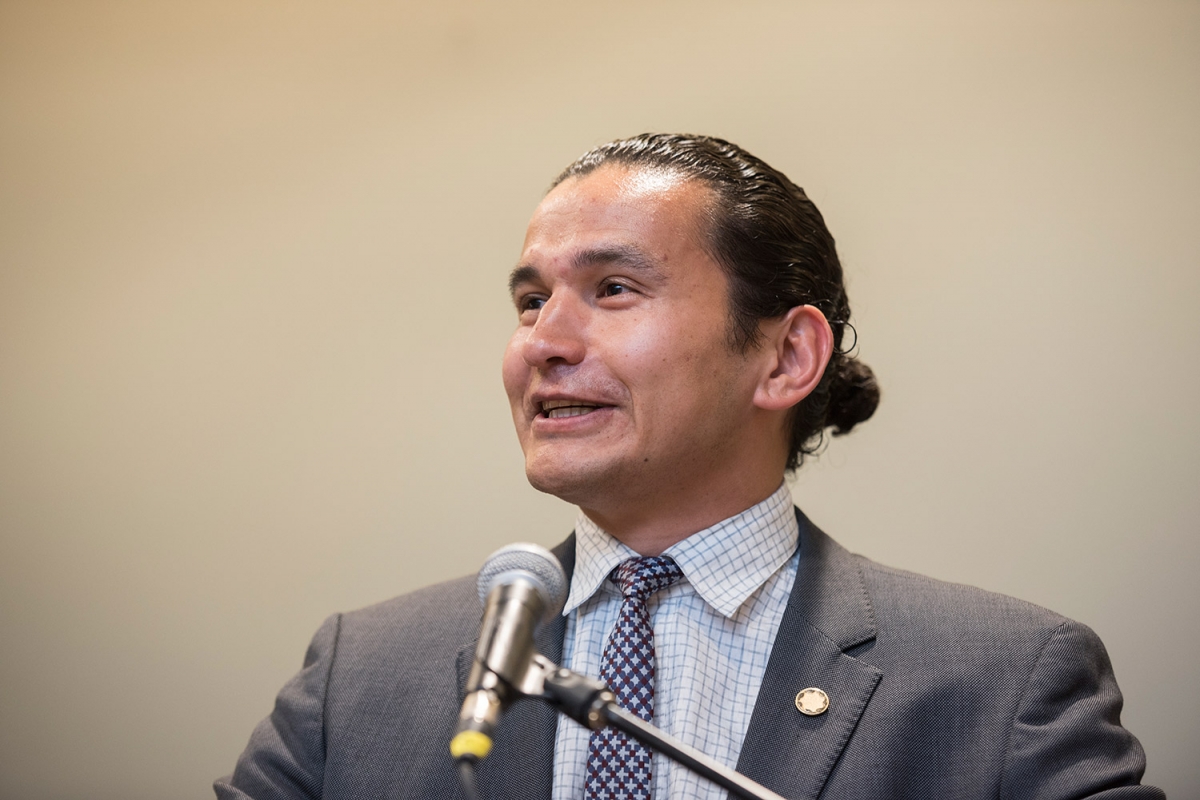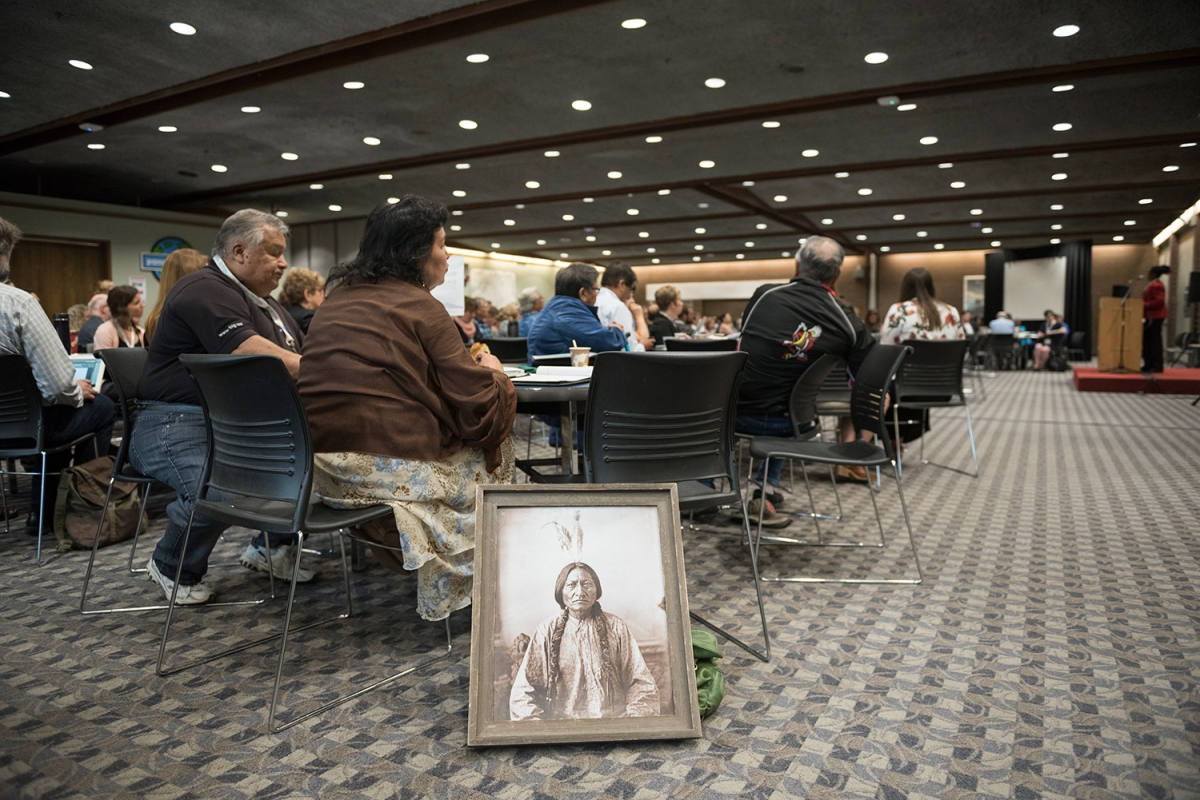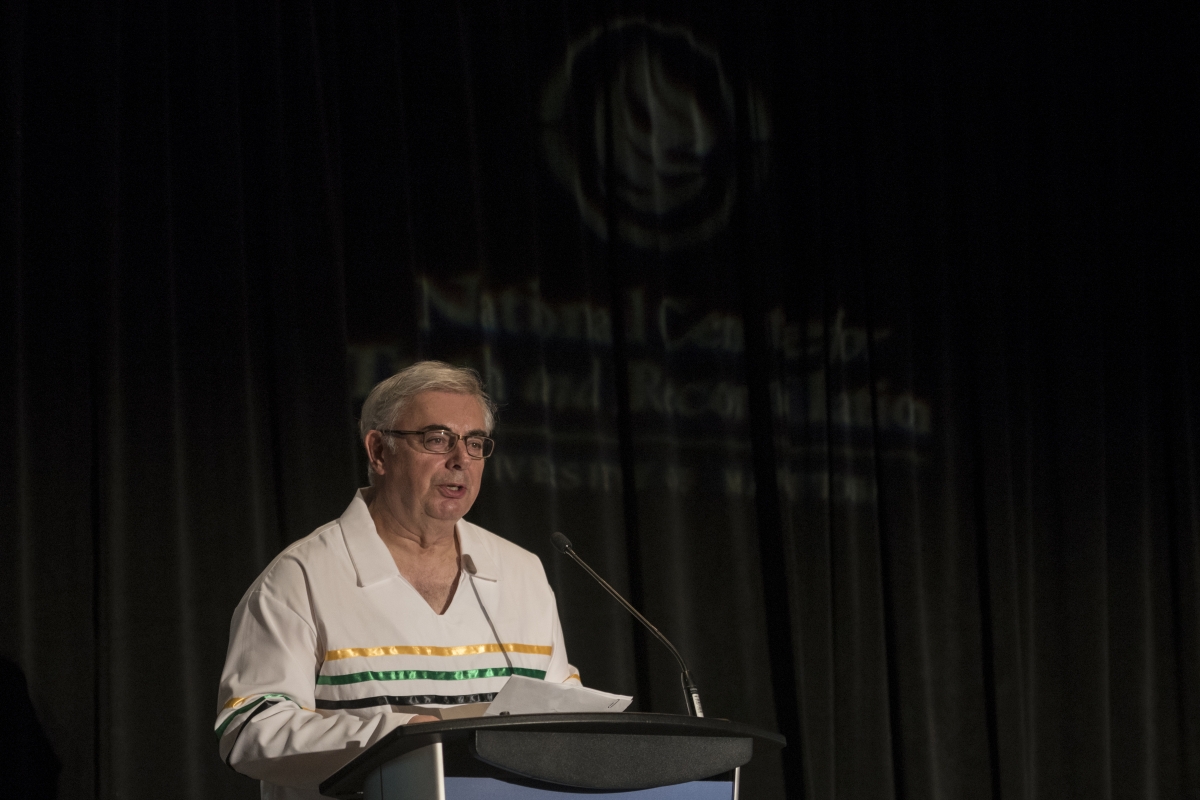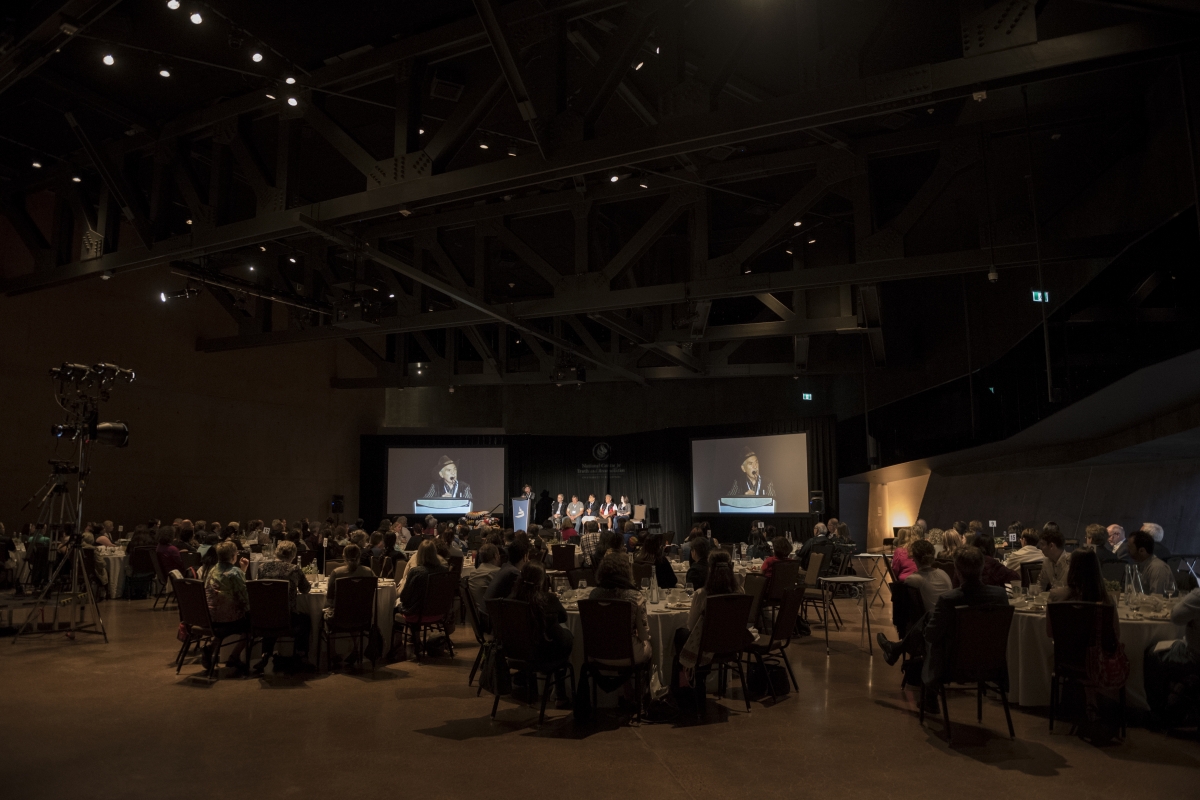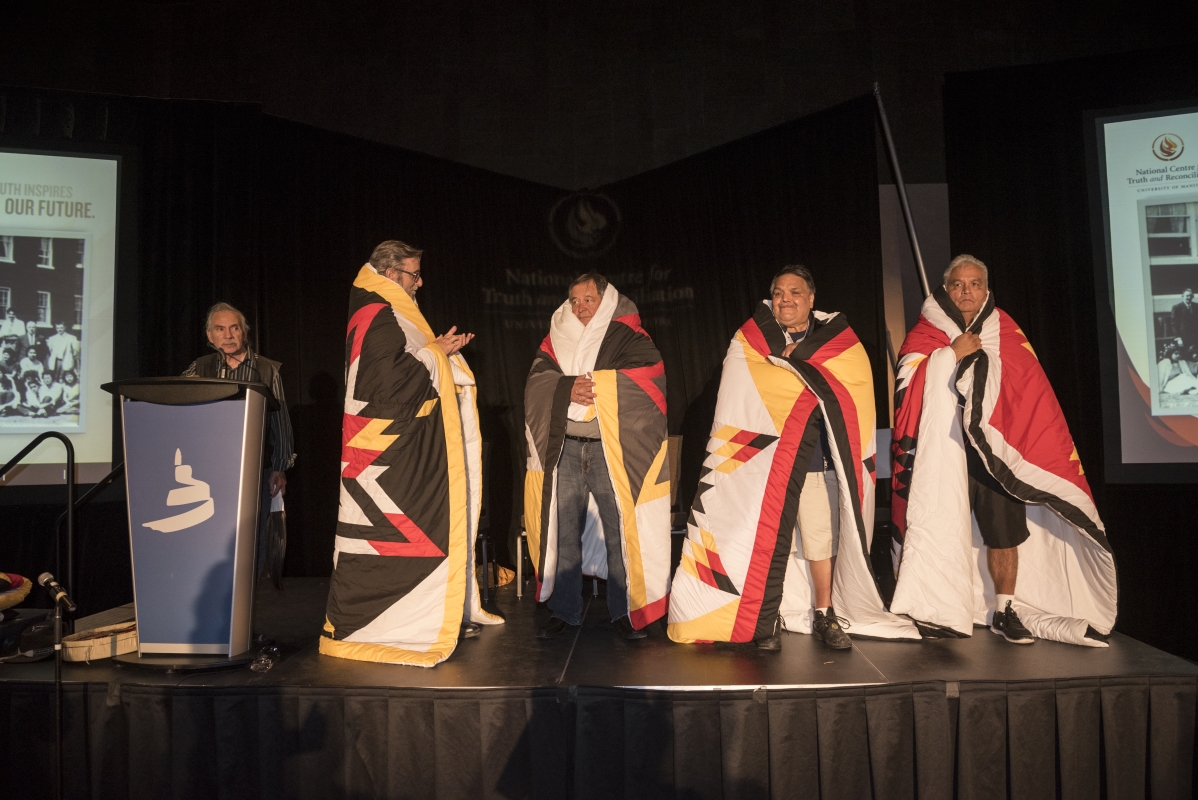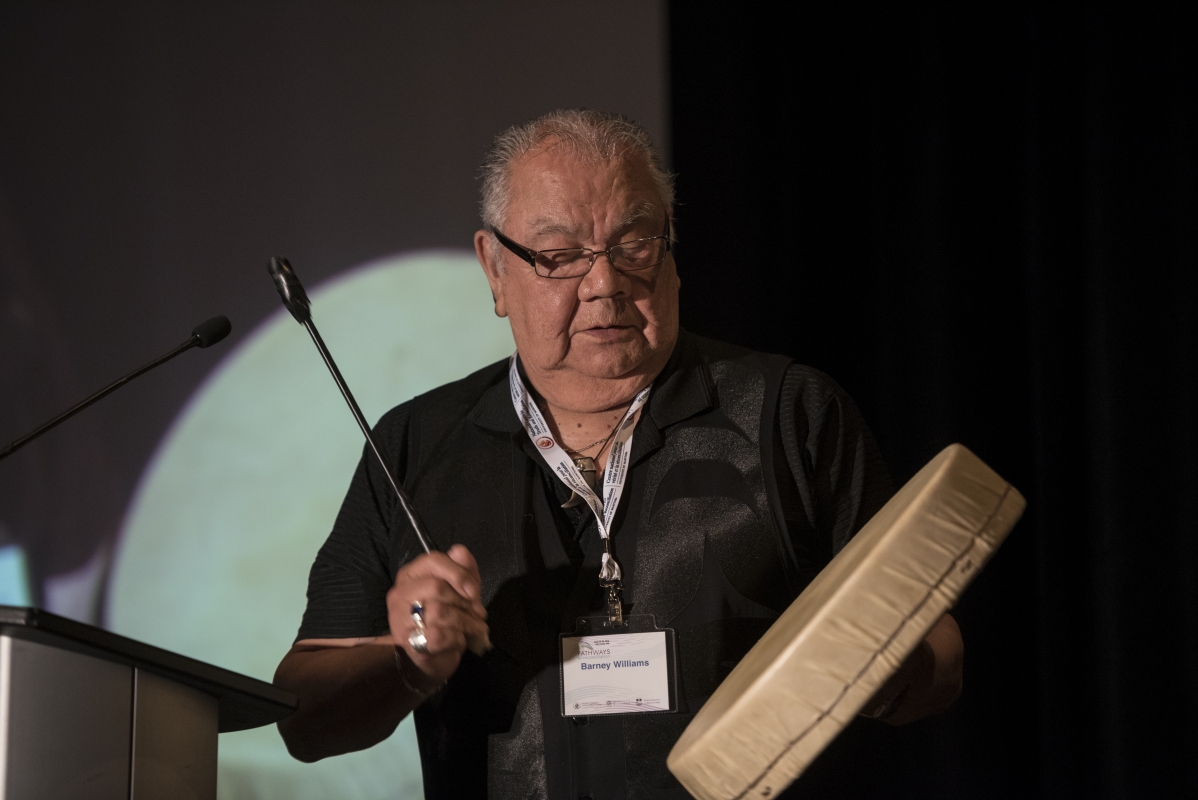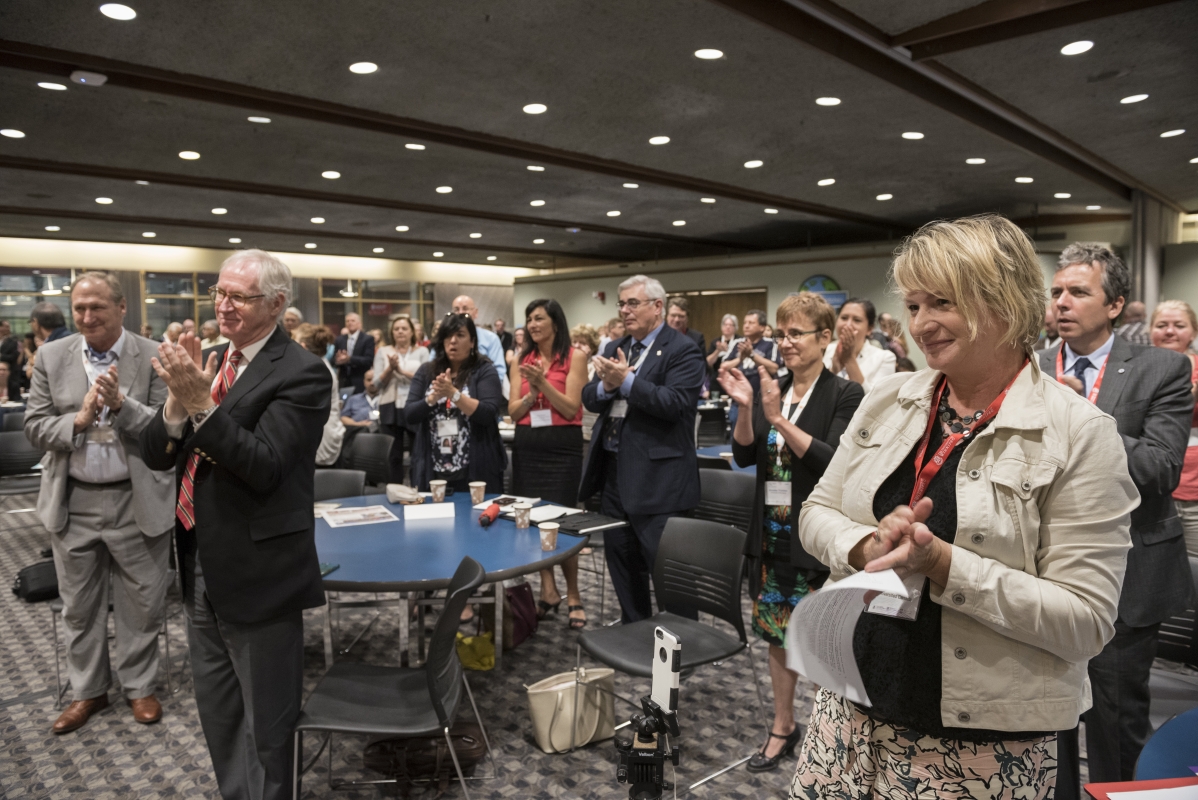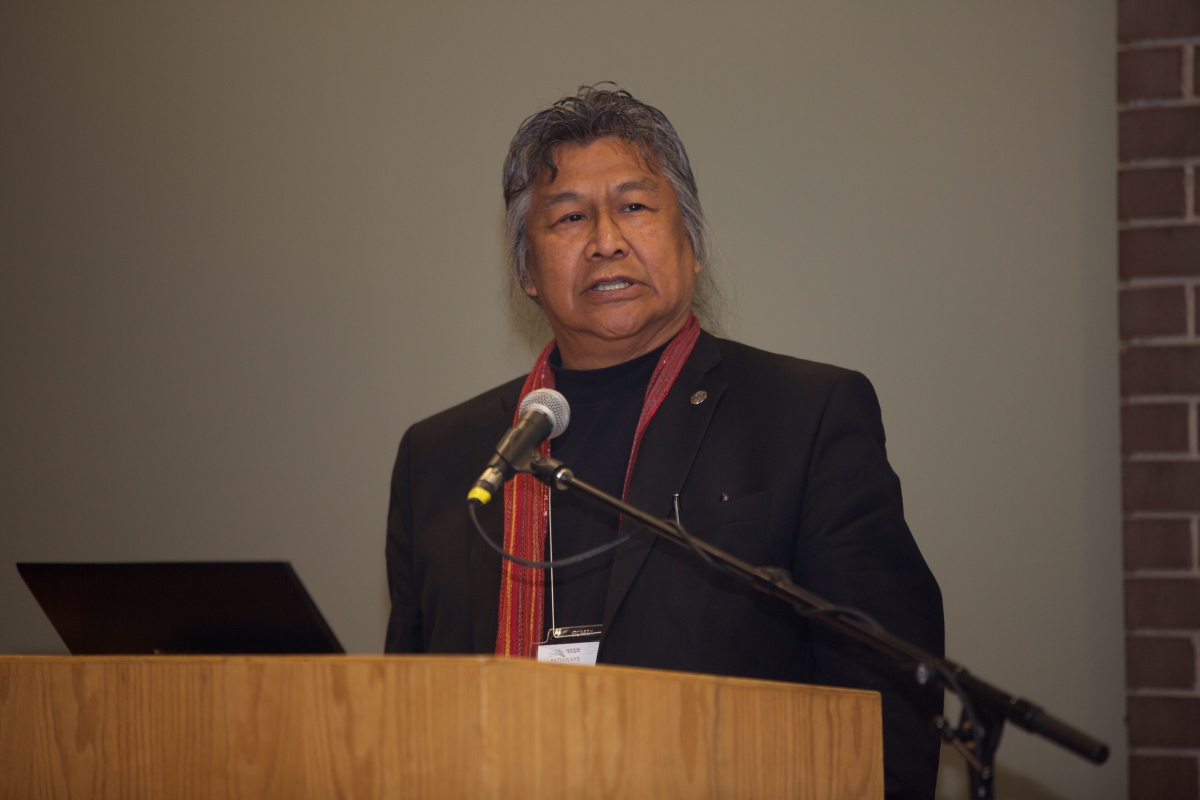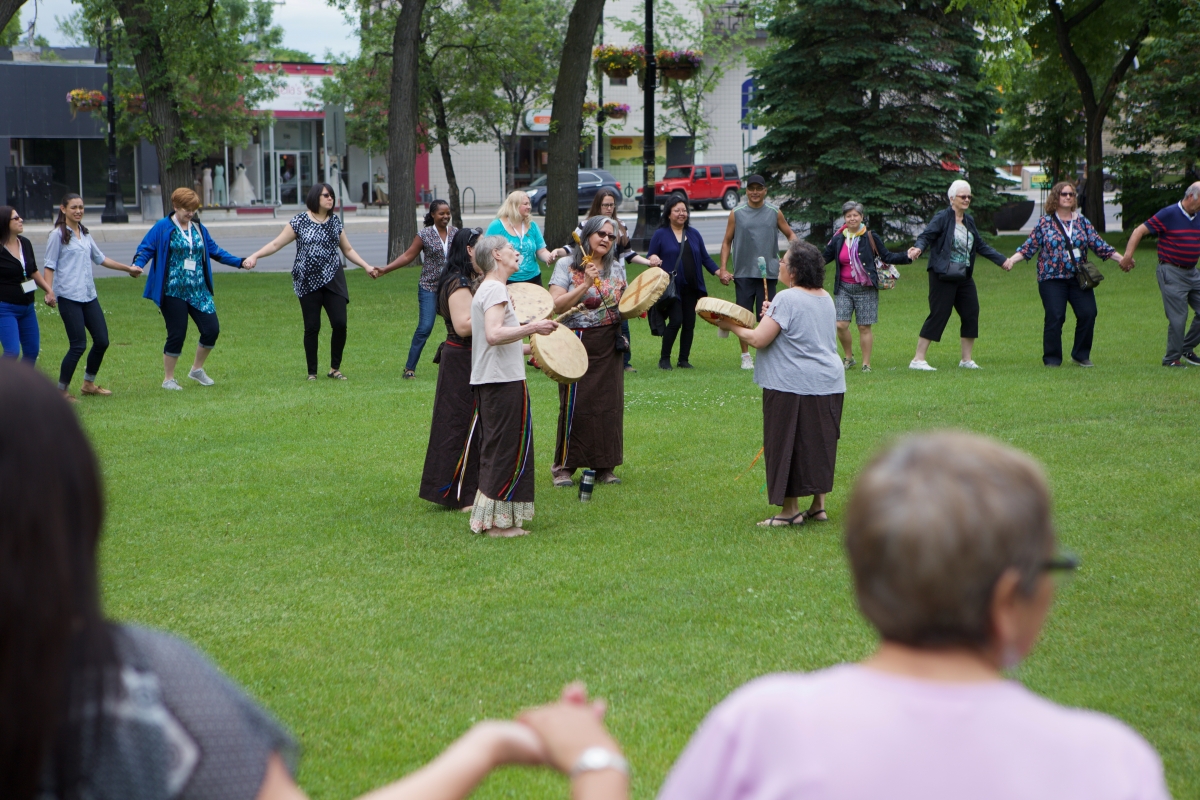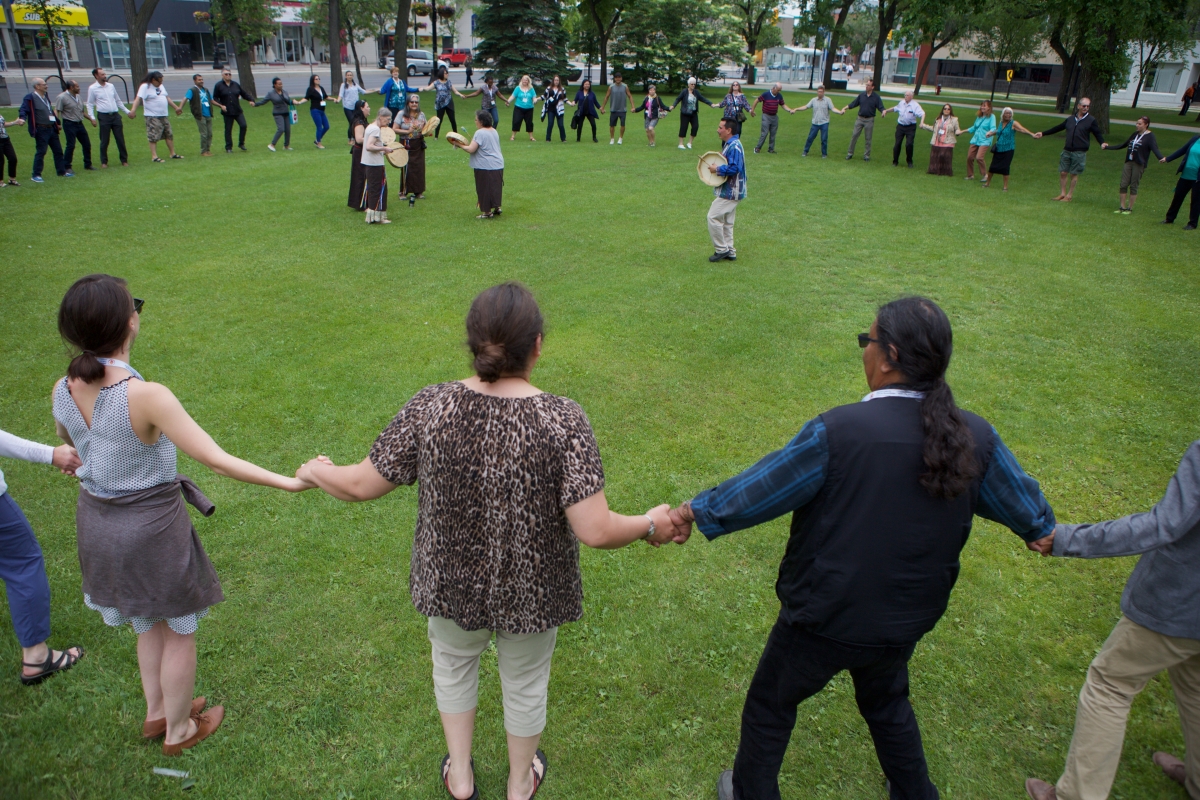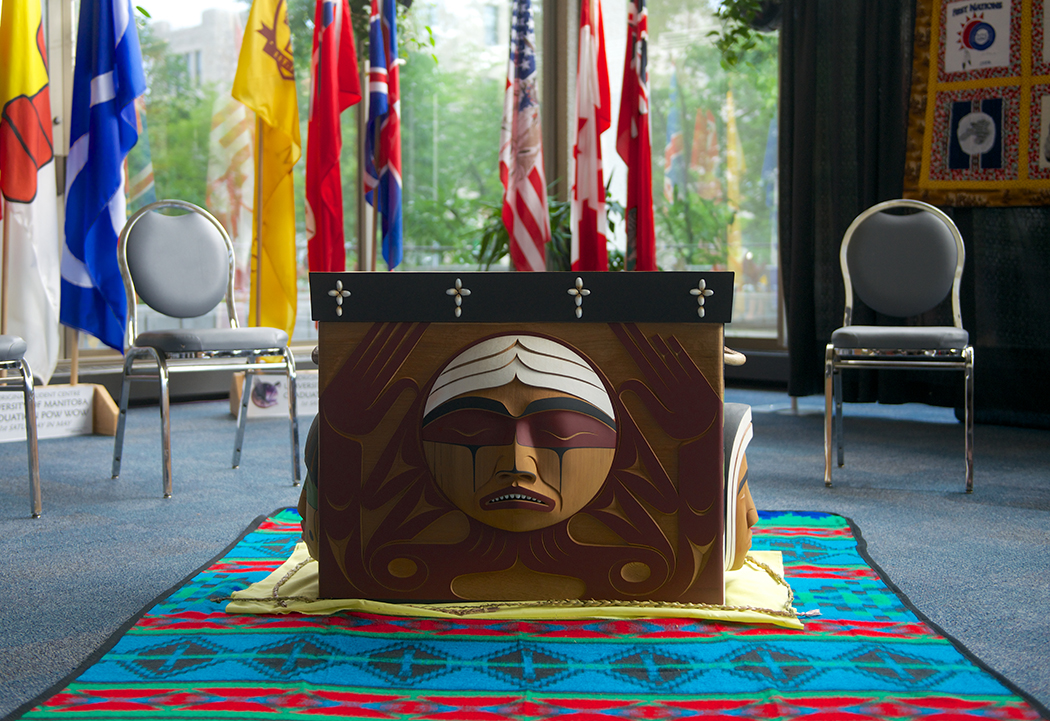
Carved by Coast Salish artist Luke Marston, the TRC Bentwood Box is a lasting tribute to all Indian Residential School Survivors. The box travelled with the TRC to all of its official events. // Photo by Adam Dolman
Exploring understandings of reconciliation
National conference takes place June 15-18
The University of Manitoba, the National Centre for Truth and Reconciliation and the University of Winnipeg are working together with a host of other organizations, including the Canadian Museum of Human Rights, to bring outstanding speakers and thinkers to Winnipeg for a national conference entitled “Pathways to Reconciliation.” The conference runs from June 15 to 18 at the University of Winnipeg.
The conference is now full, but there are a number of free events and activities that people can still participate in. More details are available here.
The plenary sessions will be livestreamed at uwinnipeg.tv
A schedule of times can be found online.
At the conference, more than 30 workshops and panels will be offered with notable keynote speakers including the Honourable Frank Iacobucci, former Supreme Court Justice; Cindy Blackstock, Executive Director, First Nations Child and Family Caring Society of Canada; Stephen Kakfwi, former Premier of the Northwest Territories; and Chief Dr. Robert Joseph, Ambassador for Reconciliation Canada and hereditary Chief of the Gwawaenuk First Nation.
The purpose of this gathering is to explore understandings of reconciliation and ways to implement and monitor reconciliation initiatives. Approximately 200 people including Residential School Survivors and their families, Indigenous leadership, Honourary Witnesses of the TRC, academics, new Canadians, policy makers, youth leaders, students and the general public are expected to attend.
“Bringing people, groups and ideas together is critical in the journey of reconciliation and we are honoured to be a partner in the process that is making this happen,” said David Barnard, President and Vice-Chancellor at the University of Manitoba.
“A year ago Senator Murray Sinclair said: ‘We have described for you a mountain. We have shown you a path to the top. We call upon you to do the climbing,'” said Frank Deer, Executive Lead of Indigenous Achievement at the University of Manitoba.
“Since then, the U of M signed the Manitoba Collaborative Education Blueprint. The Faculty of Social Work launched a Master of Social Work based in Indigenous Knowledges. The Faculty of Law is working to implement Call to Action 28, and the Faculty of Education is developing an Indigenous Teacher Education program. These are just a few examples of the steps the U of M is taking as we climb the mountain described by Murray Sinclair,” said Deer.
“The Pathways Conference is an opportunity for us to gather and to take account of the work that is being done across the country, to share best practices and to identify areas where we need to work harder,” added Deer.
Ry Moran, director of the National Centre for Truth and Reconciliation echoes these feelings stating “the work of reconciliation is far from over. This conference is very much about engaging with the future that lay ahead of us as individuals, organizations and as a nation.”
“One year ago we gathered on our campus with hundreds of people from the community to witness together the release of the TRC report. It was a profoundly moving and historic day in our nation’s history,” said Annette Trimbee, President and Vice-Chancellor, UWinnipeg. “As a place of learning we are deeply committed to incorporating Indigenous knowledge into the academy and to strengthening the preservation of Indigenous languages. As Senator Murray Sinclair has stated, it is up to each of us as Canadians to choose even one recommendation, and act on it. The Pathways to Reconciliation conference will help us do that.”
Pre-conference events will take place, including:
Reconciliation: Drawing with Reaction, Insight and Resolution
Renowned Cheyenne artist and professor Edgar Heap of Birds offers a workshop that will produce a large-scale drawing. The workshop is open to conference participants, as well as members of the Winnipeg community. The theme of the collective artwork will be issues stemming from social justice, accurate First Nations history, personal stories, healing and reconciliation. An artistic exploration is often an enriching method to discover hidden emotions and histories involving difficult policies and topics. Hosted on UWinnipeg’s campus.
Get complete conference details here.







